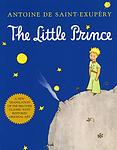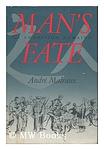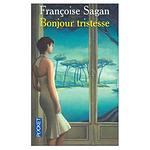The Greatest Italian, French, German "Fiction" Books Since 1900
Click to learn how this list is calculated.
This list represents a comprehensive and trusted collection of the greatest books. Developed through a specialized algorithm, it brings together 305 'best of' book lists to form a definitive guide to the world's most acclaimed books. For those interested in how these books are chosen, additional details can be found on the rankings page.
Genres
Countries
Date Range
Reading Statistics
Click the button below to see how many of these books you've read!
Download
If you're interested in downloading this list as a CSV file for use in a spreadsheet application, you can easily do so by clicking the button below. Please note that to ensure a manageable file size and faster download, the CSV will include details for only the first 500 books.
Download-
1. In Search of Lost Time by Marcel Proust
This renowned novel is a sweeping exploration of memory, love, art, and the passage of time, told through the narrator's recollections of his childhood and experiences into adulthood in the late 19th and early 20th century aristocratic France. The narrative is notable for its lengthy and intricate involuntary memory episodes, the most famous being the "madeleine episode". It explores the themes of time, space and memory, but also raises questions about the nature of art and literature, and the complex relationships between love, sexuality, and possession.
The 6th Greatest Book of All Time -
2. The Stranger by Albert Camus
The narrative follows a man who, after the death of his mother, falls into a routine of indifference and emotional detachment, leading him to commit an act of violence on a sun-drenched beach. His subsequent trial becomes less about the act itself and more about his inability to conform to societal norms and expectations, ultimately exploring themes of existentialism, absurdism, and the human condition.
The 31st Greatest Book of All Time -
3. The Magic Mountain by Thomas Mann
In this novel, the protagonist, a young, ordinary man, visits his cousin at a tuberculosis sanatorium in the Swiss Alps. Intending to stay for only a few weeks, he ends up remaining there for seven years, becoming a patient himself. The book explores his experiences and relationships with other patients and staff, delving into philosophical discussions on life, time, and the nature of disease. It also provides a vivid portrayal of the European society and intellectual life on the eve of World War I.
The 43rd Greatest Book of All Time -
4. The Little Prince by Antoine de Saint-Exupéry
A young prince from a tiny asteroid embarks on a journey across the universe, visiting various planets and meeting their strange inhabitants. Along the way, he learns about the follies and absurdities of the adult world, the nature of friendship, and the importance of retaining a childlike wonder and curiosity. His journey eventually leads him to Earth, where he befriends a fox and learns about love and loss before finally returning to his asteroid.
The 62nd Greatest Book of All Time -
5. The Tin Drum by Günter Grass
The novel tells the story of Oskar Matzerath, a boy who decides on his third birthday that he will stop growing and remain a three-year-old forever. Oskar is gifted with a tin drum by his mother, which he uses to express his emotions and thoughts. Living in Danzig during the rise of Nazi Germany, Oskar's refusal to grow is a form of protest against the adult world. The book is a blend of magical realism and historical fiction, providing a unique perspective on the horrors of World War II and the post-war era in Germany.
The 93rd Greatest Book of All Time -
6. The Leopard by Giuseppe Tomasi di Lampedusa
"The Leopard" is a historical novel set in 19th-century Sicily, during the time of the Italian unification or Risorgimento. It centers on an aging, aristocratic protagonist who is coming to terms with the decline of his class and the rise of a new social order. The narrative weaves together personal drama with the larger political and social upheaval of the time, providing a rich, nuanced portrait of a society in transition. Despite his resistance to change, the protagonist ultimately recognizes its inevitability and the futility of his efforts to preserve the old ways.
The 97th Greatest Book of All Time -
7. All Quiet on the Western Front by Erich Maria Remarque
The novel tells the story of a young German soldier, Paul Bäumer, and his experiences during World War I. The narrative explores the physical and emotional toll of war, the camaraderie between soldiers, and the disillusionment of a generation thrown into a brutal conflict. The protagonist and his friends grapple with survival, fear, and the loss of innocence, providing a stark and poignant critique of the futility and destructiveness of war.
The 100th Greatest Book of All Time -
8. The Name of the Rose by Umberto Eco
Set in a wealthy Italian monastery in the 14th century, the novel follows a Franciscan friar and his young apprentice as they investigate a series of mysterious deaths within the monastery. As they navigate the labyrinthine library and decipher cryptic manuscripts, they uncover a complex plot involving forbidden books, secret societies, and the Inquisition. The novel is a blend of historical fiction, mystery, and philosophical exploration, delving into themes of truth, knowledge, and the power of the written word.
The 108th Greatest Book of All Time -
9. Journey to the End of The Night by Louis-Ferdinand Céline
The novel is a semi-autobiographical work that explores the harsh realities of life through the cynical and disillusioned eyes of the protagonist. The narrative follows his experiences from the trenches of World War I, through the African jungles, to the streets of America and the slums of Paris, showcasing the horrors of war, colonialism, and the dark side of human nature. The protagonist's journey is marked by his struggle with despair, loneliness, and the absurdity of existence, offering a bleak yet profound commentary on the human condition.
The 124th Greatest Book of All Time -
10. The Plague by Albert Camus
The novel is set in the Algerian city of Oran during the 1940s, where a deadly plague sweeps through, causing the city to be quarantined. The story is told through the eyes of a doctor who witnesses the horror and suffering caused by the disease. The narrative explores themes of human resilience, solidarity, and the struggle against the absurdities of life. It also examines how individuals and society respond to death and disease, creating a profound meditation on the nature of existence and human endurance.
The 135th Greatest Book of All Time -
11. Steppenwolf by Hermann Hesse
The novel presents a poignant exploration of a man's struggle with his dual nature. The protagonist, a middle-aged man, finds himself torn between his humanistic, intellectual tendencies and his more primitive, wolf-like instincts. As he navigates his way through the surreal and sometimes hallucinatory world, he encounters various characters who challenge his views and push him towards self-discovery and transformation. The narrative delves into themes of alienation, the subconscious mind, and the search for meaning in life.
The 147th Greatest Book of All Time -
12. Buddenbrooks by Thomas Mann
"Buddenbrooks" is a novel that chronicles the decline of a wealthy north German merchant family over the course of four generations. The narrative focuses on the fluctuating fortunes and internal struggles of the family, reflecting the societal changes and economic decline of the period. The family's personal and business relationships, their moral values, and their struggle to maintain social status are all explored against the backdrop of the changing political and social landscape.
The 149th Greatest Book of All Time -
13. Doctor Faustus by Thomas Mann
The novel is a reimagining of the Faust legend set in the context of the first half of the 20th century and the turmoil of Germany in that period. It tells the story of a composer who makes a pact with the devil, exchanging his soul for unlimited creative genius. The protagonist's life and work reflect the cultural and political journey of Germany leading up to World War II, providing a deep exploration of the individual's role in a society undergoing dramatic change. The novel is also a profound meditation on the nature of time, the art and the artist, and the destructiveness of human ambition.
The 153rd Greatest Book of All Time -
14. Siddhartha by Hermann Hesse
"Siddhartha" is a novel about the spiritual journey of a young man named Siddhartha during the time of Gautama Buddha. Born into an Indian Brahmin family, Siddhartha rejects his privileged life to seek spiritual enlightenment. His journey takes him through periods of harsh asceticism, sensual indulgence, material wealth, and finally, to the simple life of a ferryman on a river where he finds peace and wisdom. The book explores themes of self-discovery, spiritual quest, and the desire for a meaningful life.
The 236th Greatest Book of All Time -
15. Man's Fate by Andre Malraux
Set in 1920s Shanghai during a time of political upheaval, the novel explores the existential themes of life, death, and the human condition through the experiences of a group of revolutionaries. The narrative follows their struggles and sacrifices for their cause, the Communist revolution, and their inevitable confrontation with their own mortality and the harsh realities of life. The book delves into the complexities of political ideologies, human relationships and the constant struggle between hope and despair.
The 247th Greatest Book of All Time -
16. Nausea by Jean Paul Sartre
The novel follows a historian living in a small French town, struggling with a strange and unsettling feeling of disgust and revulsion he calls 'nausea'. He grapples with the existential dread of his own existence and the meaningless of life, continually questioning his own perceptions and the nature of reality. As he navigates through his everyday life, he is plagued by his philosophical thoughts and the overwhelming sensation of nausea, leading him to a profound existential crisis.
The 255th Greatest Book of All Time -
17. Confessions of Zeno by Italo Svevo
"Confessions of Zeno" is a satirical, semi-autobiographical novel that follows the life of Zeno Cosini, a neurotic Italian businessman, as he tries to quit smoking. The book is presented as a diary, written at the suggestion of Zeno's psychoanalyst, and it details Zeno's thoughts on his health, his family, his business ventures, and his infatuation with a beautiful woman. Throughout the story, Zeno's attempts to quit smoking serve as a metaphor for his struggles with his personal weaknesses and his quest for self-understanding.
The 256th Greatest Book of All Time -
18. The Counterfeiters by André Gide
"The Counterfeiters" is a complex novel that explores themes of authenticity, morality, and identity, primarily through the lens of a group of friends in Paris. The story revolves around a series of counterfeit coins, which serve as a metaphor for the characters' struggles with their own authenticity and self-perception. The narrative also delves into the lives of the characters, their relationships, personal struggles, and their journey towards self-discovery. The book is noted for its non-linear structure and metafictional elements, with the author himself being a character in the story.
The 262nd Greatest Book of All Time -
19. If on a Winter's Night a Traveller by Italo Calvino
The novel is a postmodernist narrative that follows the adventures of the reader, who is trying to read a book called "If on a Winter's Night a Traveller." However, the reader keeps encountering obstacles that prevent him from finishing the book, including printer's errors, censorship, and interruptions from other characters. The story is interspersed with the beginnings of ten different novels, each interrupted at a moment of suspense. The book is a meditation on reading, writing, and the nature of narrative itself.
The 272nd Greatest Book of All Time -
20. Invisible Cities by Italo Calvino
In this unique novel, a Venetian traveler describes 55 different cities to the Mongol emperor, each city more fantastical and surreal than the last. The cities are divided into categories such as "Cities and Memory," "Cities and Desire," "Cities and Signs," etc. As the traveler continues to describe these cities, it becomes clear that they are all actually the same city, Venice, seen from different perspectives and points in time. The novel explores themes of memory, perception, and the nature of human experience.
The 293rd Greatest Book of All Time -
21. The Lover by Marguerite Duras
"The Lover" is a poignant exploration of forbidden love, power dynamics, and colonialism. Set in 1930s French Indochina, it tells the story of a tumultuous and passionate affair between a 15-year-old French girl and her wealthy, older Chinese lover. The narrative delves into the complexities of their relationship, the societal norms they defy, and the inevitable heartbreak that follows. The protagonist's struggle with her family's poverty and her mother's mental instability further complicates the story, making it a compelling exploration of love, desire, and societal constraints.
The 299th Greatest Book of All Time -
22. Memoirs of Hadrian by Marguerite Yourcenar
"Memoirs of Hadrian" is a historical novel that presents a fictional autobiography of the Roman Emperor Hadrian, who reigned from 117 to 138 AD. Narrated in the first person, the novel explores Hadrian's ascension to the throne, his administration, his love for the young Antinous, and his philosophical reflections on life and death. The narrative is framed as a letter to his successor, Marcus Aurelius, offering insights into the complexities of power, the nature of leadership, and the human condition.
The 310th Greatest Book of All Time -
23. Berlin Alexanderplatz by Alfred Döblin
Set in 1920s Berlin, the book follows the life of Franz Biberkopf, a man recently released from prison who is trying to make an honest life for himself. However, he is drawn back into the criminal underworld due to circumstances and the influence of his acquaintance, Reinhold. The book is a vivid portrayal of city life in Weimar-era Germany, exploring themes of poverty, crime, redemption and the struggle to maintain one's morality amidst chaos and corruption.
The 321st Greatest Book of All Time -
24. The Tartar Steppe by Dino Buzzati
The novel follows a young officer who spends his entire life waiting for an attack that never comes at a remote desert outpost. The protagonist's life is consumed by the monotonous routine and the fear of the unknown, reflecting on the human condition and the dread of the passage of time. The desert symbolizes the emptiness and futility of life, while the constant anticipation of a foreign invasion that never happens represents the anxiety and fear of death.
The 327th Greatest Book of All Time -
25. Bonjour Tristesse by Francoise Sagan
This novel centers around a 17-year-old girl living with her playboy father in the French Riviera. The pair lead a carefree, hedonistic lifestyle until the father decides to remarry, causing the protagonist to hatch a plan to prevent the marriage and return to their old way of life. The story explores themes of youth, love, and the struggle between desire and morality.
The 396th Greatest Book of All Time
Reading Statistics
Click the button below to see how many of these books you've read!
Download
If you're interested in downloading this list as a CSV file for use in a spreadsheet application, you can easily do so by clicking the button below. Please note that to ensure a manageable file size and faster download, the CSV will include details for only the first 500 books.
Download























